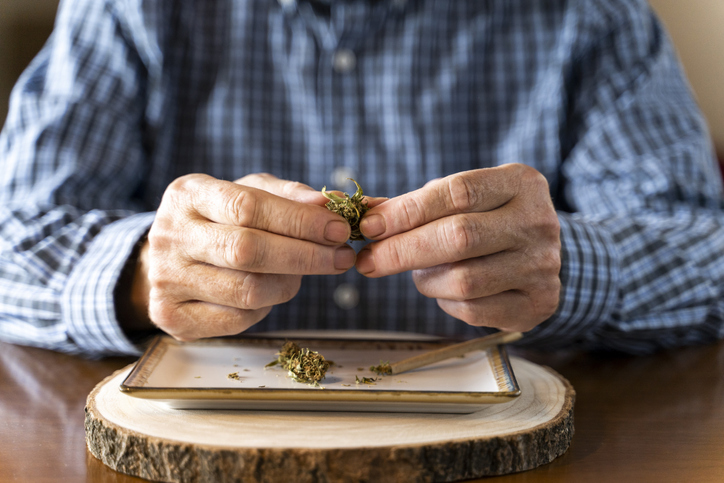Curaleaf Expanding, Diversifying Marijuana Industry Opportunities
‘Rooted In Good’: Cannabis Equity And Expanding Marijuana Industry Opportunities

Source: Bloomberg / Getty
Khadijah Tribble believes cannabis equity requires a deeper look at the impact of drug policies on communities of color. As the cannabis industry continues to grow into a viable business model, many obstacles exist for Black and brown communities.
But Tribble, founder of Marijuana Matters, a nonprofit that works in the realm of cannabis policy, says that diversifying the cannabis field is about more than just expanding opportunities for people to enter the industry.
“[It] truly is a journey around how to address poverty and communities of color, and that’s the thing I’ve been trying to do my whole career,” Tribble told NewsOne in a recent interview.
She recognizes that communities, government and industry have all had a role to play in eliminating barriers to opportunity in a cannabis economy. The organization’s vision is centered on repairing what was dismantled, restoring what was destroyed and reclaiming that which had been displaced.
Wanting to disrupt the status quo, Tribble established Marijuana Matters to shift the regulatory landscape and embed models of equity into legislation at all levels of government. She has since leveraged that experience into her current position as the Vice President for Corporate Social Responsibility for Curaleaf. Leading the Rooted in Good Program for Curaleaf, Tribble says the company grounds its work in three pillars: diversity equity and inclusion, social equity and environment/sustainability.
“We’re having some really hard conversations as a country [but] also inside of our own corporate community here in South Carolina,” explained Tribble. “And out of those conversations became some clear pathways for us to do this work with intentionality.”
The three pillars are not simply pleasant words on the website, but guideposts for action across the company. Approaches to equity also inform partnerships and investments in impacted communities. Removing systemic barriers for participation in the industry.
“I have been curious around what role industry could play in creating pathways out of poverty for communities that have been disproportionately harmed by the war on drugs,” Tribble said.
She compared the barriers to working in the marijuana industry that come from a marijuana-related criminal offense to an economic sanction for the individual and their children. Curaleaf has partnered with cannabis companies and communities across the country, including Minorities for Medical Marijuana Inc., Women Grow and Uplift Maryland.
In addition to increasing supplier diversity and contributing to community investment programs, Tribble pointed to Curaleaf’s executive roundtable which functions as a kind of mentor program. Participants are paired with senior leadership and have the opportunity to learn more about all aspects of the trade, including ancillary opportunities and how other industries interface with cannabis.
Local ordinances across the country provide pathways for people who would otherwise be excluded from the cannabis industry. In Detroit, Neighborhood Essentials is one of 35 cannabis micro-businesses that have been granted a license under a new recreational marijuana ordinance.
A Healthline report on cannabis equity found that 33,000 new jobs were created in the industry in 2019, with an estimated median salary that was 11% more than the national average that year. Healthline cited a 2020 ACLU report showing that even with advancement and cannabis reforms, Black people are almost four times more likely to be arrested for marijuana possession when compared to white people.
For Tribble, addressing the persisting inequity while creating new opportunities to redefine the culture of cannabis is central to the work at Curaleaf.
“Cannabis has a culture around it and it no longer needs to be verified,” Tribble explained. “I really see opportunities for a win-win for all of the stakeholders. [The] government has a responsibility to repair harm and make sure that the regulatory framework is one that centers the folks who have been most harmed by the war on drugs.”
Anoa Changa is a movement journalist and retired attorney based in Atlanta, Georgia. Follow Anoa on Instagram and Twitter @thewaywithanoa.
SEE ALSO:
The Most Sweeping Bill To Decriminalize Marijuana Is A Racial And Social Justice Issue
The One Story: Black Women Are Working To Eliminate The Racial Stigma Of Marijuana
















